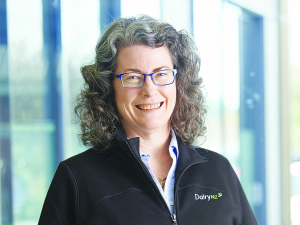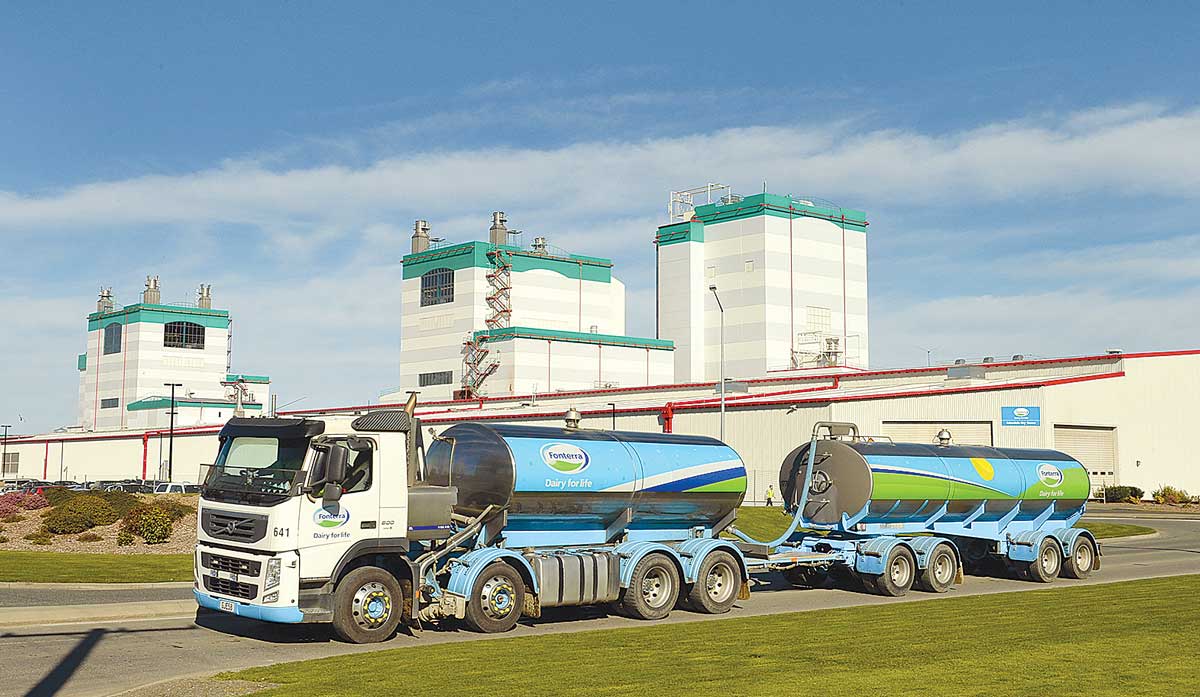DairyNZ Calls for Changes to Government’s Proposed Resource Management Act Reform
DairyNZ says the Government’s proposed Resource Management Act reform needs further work to ensure it delivers on its intent.
 Dairy NZ's Sharon Morrell says good grass growth is setting things up for farmers in terms of milk production.
Dairy NZ's Sharon Morrell says good grass growth is setting things up for farmers in terms of milk production.
The dairy industry is humming with strong pasture growth, thanks to a kind winter and a mild spring.
Many farmers are already turning surplus pasture into silage.
DairyNZ acting general manager farm performance Sharon Morrell says the good grass growing conditions are a “get out of jail free card” for many farmers who endured a prolonged drought last season.
“It’s been a good spring so far and winter growth rates were fantastic, comparatively...It has allowed a lot of people to recover much quicker from the drought,” she told Rural News.
Morrell says the good grass growth was setting things up well for farmers in term of milk production.
“Farmers are always thinking that if I can get X amount of milk in the vat before Christmas, the rest of the season is a bonus.
“This is the part that really counts.”
While DairyNZ doesn’t collect figures on milk production, Fonterra says its peak milk – the highest daily collection of the season – was on October 18 when it processed over 80 million litres of milk.
“Last year we processed over 80 million litres on our peak day and we processed about the same this year – all with the extra challenge of significant Covid-19 precautions still in place across our manufacturing sites,” a spokeswoman told Rural News.
She says October is a busy time right across the co-operative, with Fonterra tankers are picking up milk from farms every nine seconds. October milk collection data will be released at the end of this month.
 |
|---|
|
Fonterra says its peak milk was on October 18 when it processed over 80 million litres. |
Despite the good pasture growth on farms, DairyNZ is urging farmers to be ready for a dry summer.
Morrell says NIWA suggests La Niña conditions – warmer than average ocean and air temperatures for New Zealand – are coming.
She says some farmers are setting themselves up by storing away silage and planning extra summer crops like maize.
“Their recent experience with how dry last summer was and how long it extended, there’s probably more proactive thinking about putting as much silage away as they can,” she says.
“Some farmers are planting little bit more maize than they might normally have. Some are also thinking about summer crops.
“With recent experience, it tends to remind everybody to approach things in the best practice way.”
She points out farms were getting dry around the country, but several bouts of heavy rain last week have been a blessing.
However, North Otago and South Canterbury still remain areas of concern.
Morrell says even irrigators are starting to think about how to manage their summers if the current weather persists in these areas.
Her message to farmers is to be actively thinking about setting up for summer.
“Review plans and make decisions early. During the last summer drought, those who were decisive fared much better than those who were hopeful that things would change.”
Budou are being picked now in Bridge Pā, the most intense and exciting time of the year for the Greencollar team – and the harvest of the finest eating grapes is weeks earlier than expected.
The Real Estate Institute of New Zealand (REINZ) has released its latest rural property report, providing a detailed view of New Zealand’s rural real estate market for the 12 months ending December 2025.
Rural retailer Farmlands has released it's latest round of half-year results, labeling it as evidence that its five-year strategy is delivering on financial performance and better value for members.
OPINION: "We are back to where we were a year ago," according to a leading banking analyst in the UK, referring to US president Donald Trump's latest imposition of a global 10% tariff on all exports into the US.
DairyNZ says the Government’s proposed Resource Management Act reform needs further work to ensure it delivers on its intent.
Overseas Trade Minister Todd McClay says he's working constructively with the Labour Party in the hope they will endorse the free trade agreement (FTA) with India when the agreement comes before Parliament for ratification.

OPINION: A mate of yours truly reckons rural Manawatu families are the latest to suffer under what he calls the…
OPINION: If old Winston Peters thinks building trade relations with new nations, such as India, isn't a necessary investment in…